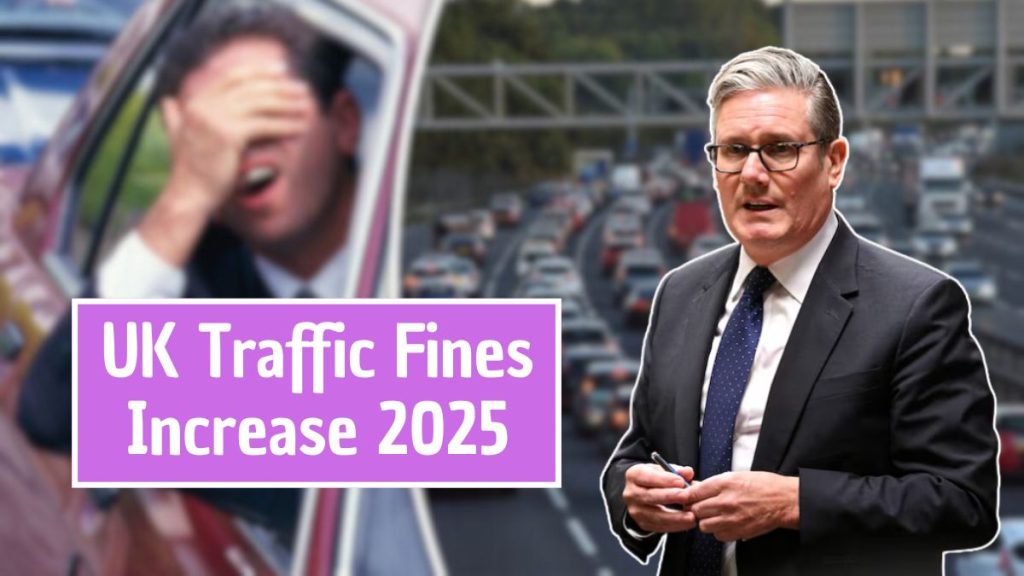The UK government, alongside major banks and regulators, is preparing to roll out new bank withdrawal rules in late 2025. For millions of pensioners, this development could significantly change how they access and manage their money.
While officials argue that the new rules are designed to reduce fraud, modernise banking, and cut costs, critics say the measures risk harming pensioners who still rely heavily on cash for their daily budgeting and independence.
Why Are Withdrawal Limits Being Introduced?

The shift toward limiting cash withdrawals is not sudden. Since 2010, the UK has seen thousands of bank branches and ATMs shut down, reflecting the long-term decline in cash use. Authorities cite several reasons for the 2025 changes:
- Declining Cash Use: Digital transactions now dominate everyday spending.
- Fraud Prevention: Pensioners are often targeted in scams involving large cash withdrawals.
- Cost Efficiency: Handling, transporting, and storing cash is expensive for banks.
- Modernisation: The government wants to accelerate the transition to secure, digital-first payment systems.
While these reasons sound logical, many pensioners argue they don’t reflect the reality of daily life—especially for those who budget and shop primarily in cash.
Quick Summary – UK Bank Withdrawal Rules 2025
| Category | Details |
|---|---|
| Policy Name | UK Bank Withdrawal Limit Rules 2025 |
| Authorities | UK Government, Banks, Financial Regulators |
| Implementation Date | September 2025 onwards |
| ATM Withdrawal Cap | Estimated between £250–£500 per day |
| Branch Counter Limits | Staff will encourage smaller, more frequent withdrawals |
| Security Checks | Large withdrawals may trigger ID checks or delays |
| Digital Priority | Customers directed toward online banking and digital wallets |
| Groups Most Affected | Pensioners, rural residents, digitally excluded individuals |
| Official Source | www.gov.uk |
What Do the New Withdrawal Rules Include?
While specific limits may vary slightly between banks, the framework is expected to involve:
- ATM Limits: A cap of £250–£500 per day, compared to current higher allowances.
- Branch Restrictions: Staff will encourage smaller withdrawals rather than large lump sums.
- Transaction Monitoring: Withdrawals above a threshold could require ID verification.
- Digital Priority: Customers will be nudged toward card payments, online banking, and digital wallets.
For pensioners who typically withdraw their full monthly pension in one go, this shift could mean major changes to how they handle their household budgets.
How Could Pensioners Be Impacted?
Cash Dependency: Many elderly citizens still rely on cash envelopes for bills and groceries. Smaller withdrawals disrupt this habit.
Rural Access Issues: Small towns already face bank closures. Limits could worsen financial exclusion.
Digital Exclusion: Not all pensioners are confident using smartphones or apps. Withdrawal limits risk pushing them into systems they don’t understand.
Fraud Risks: Ironically, forcing digital adoption could expose pensioners to more online scams.
Why Are Pensioners Most Concerned?
- They grew up in a cash-first society and trust physical money.
- Health challenges such as poor eyesight or memory issues make digital systems harder.
- Cash provides a sense of control and security.
- Many prefer making large monthly withdrawals to cover rent, bills, and food in advance.
For these reasons, the new caps feel like a direct threat to pensioners’ financial independence.
What Do Banks and the Government Say?
Authorities insist the changes are necessary:
- Fraud Prevention: Large cash withdrawals make pensioners prime targets for criminals.
- Cost Savings: Cash handling costs the banking system millions annually.
- Digital Shift: Officials say a cashless future is inevitable.
The Treasury has promised that “access to cash will remain legally protected”, but critics argue that “access” without convenience and flexibility means little.
Expert Opinions
- Supporters argue caps will reduce fraud and encourage safer money habits.
- Critics warn that the rules discriminate against elderly and digitally excluded groups.
- Consumer advocates are lobbying for exemptions or special protections for pensioners.
How Can Pensioners Prepare?
- Spread Withdrawals: Instead of monthly lump sums, take smaller weekly amounts.
- Use Post Office Services: Many accounts allow free withdrawals at Post Offices.
- Prepaid Debit Cards: These can be topped up with set amounts, useful for budgeting without internet access.
- Family Support: Trusted relatives can help set up digital banking safely.
- Report Issues: If a bank applies unfair restrictions, pensioners can appeal to the Financial Ombudsman Service.
Could Exemptions Be Introduced?
Consumer advocates are pushing for:
- Larger withdrawal allowances for pensioners.
- Dedicated in-branch support for the elderly.
- Tailored fraud protections instead of blanket restrictions.
Whether these exemptions will be granted remains uncertain, but lobbying is intensifying ahead of the September 2025 rollout.
Public Reaction
- Pensioners: Fear losing independence and control over their money.
- Younger Citizens: Some see it as modernisation, others as unfair discrimination.
- Campaigners: Call for fair access to cash guarantees for everyone, not just digital-savvy users.
Is the UK Moving Toward a Cashless Economy?
The UK is undeniably moving closer to a cashless society, but risks remain:
- Not all shops accept cards or mobile wallets.
- Power cuts or digital failures can instantly halt cashless systems.
- Pensioners risk being excluded from everyday financial life if cash disappears too quickly.
FAQs – UK Bank Withdrawal Limit Rules 2025
Q1. When will the new withdrawal rules start?
The rules are expected to take effect from September 2025.
Q2. What is the daily cash withdrawal limit likely to be?
ATM withdrawals will likely be capped between £250 and £500 per day, though exact amounts may vary by bank.
Q3. Why are these changes being introduced?
Authorities cite fraud prevention, cost efficiency, and digital modernisation as the main reasons.
Q4. How will pensioners be affected?
Pensioners may struggle with cash budgeting, rural access issues, and digital exclusion, making these limits particularly difficult for them.
Q5. Will there be any exemptions for pensioners?
Consumer groups are lobbying for special exemptions, but no guarantees have been announced yet.













